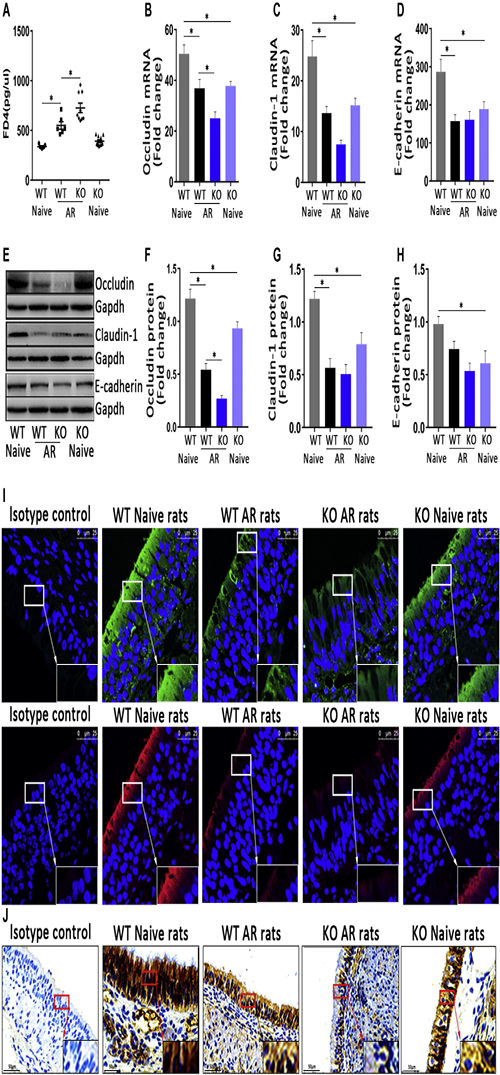The research team led by Professor Zhang Xiaowen of SKLRD achieves a new progress in the research of MUC1
2019-12-251062Recently, a research achievement “MUC1-deficiency promotes nasal epithelial barrier dysfunction in subjects with allergic rhinitis” was published in an authoritative journal “Journal of Allergy and Clinical Immunology, IF=14.11), which was ranked first in the international field of allergy and allergic reaction in December 2019, whose co-first authors were Zhou Libo, Zheng Yaoming, Liao Wenjing and Song Lijuan in the research team led by Professor Zhang Xiaowen with allergic pulmonary disease study group of SKLRD.

Compared with the healthy reference group, the MUC1 expression level has reduced in the patients of allergic rhinitis and nasal mucosal tissues of model rats
The results of the research indicate that compared with the healthy reference group, the MUC1 expression level is reduced in the patients of allergic rhinitis and nasal mucosal tissues of model rats. After the MUC1 gene was removed, the disease symptoms and nasal inflammation of allergic rhinitis of rats became worse. Further research indicates that the absence of MUC1 may weaken the expression of Occludin, Claudin-1 and E-cadherin. In the allergic rhinitis, the absence of MUC1 may weaken the expression of Occludin and worsen the disruption to the epithelial barrier. The research team has raised a new concept that the control of Occludin by MUC1 plays an important role in the hindrance of mucosal barrier functions of allergic rhinitis. The absence of MUC1 is a key point, which is expected to be a target for the treatment of allergic rhinitis.

The absence of MUC1 is related with the function of nasal epithelial barrier
Professors Zhang Xiaowen, Lu Wenju and Yang Pingchang with PI of the SKLRD are joint corresponding authors of the paper. After the paper “3-Methyl-4-nitrophenol triggers nasal allergy by modulating dendritic cell properties” was published in September 2019, this is the second paper published by Professor Zhang Xiaowen on the journal as a joint corresponding author in 2019.
















